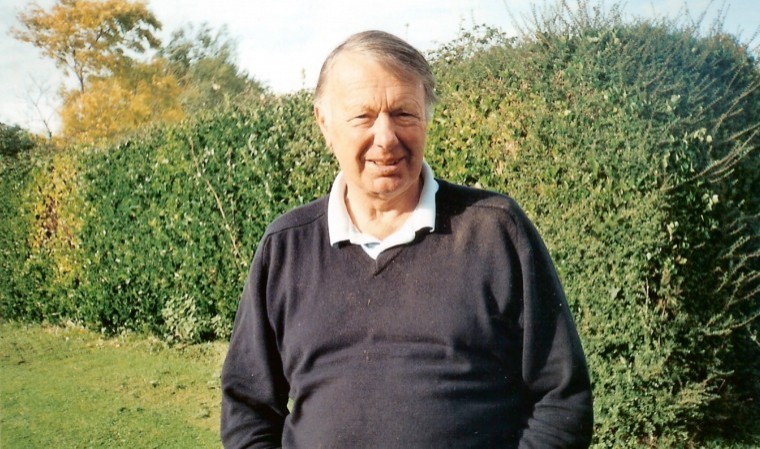We still await a date for the dieback afflicted Ash trees to be felled. Although the Forestry Commission has granted us a felling permit neither their local representative, or our fellers, presently see the trees as a threat, and so it looks as if the job will be done over the next three to four months. It would have been a relief to get them out of harm’s way but there is so much call on well qualified fellers, due to the sheer volume of similar work in this area we have to form the queue, frustrating but understandable.
They have to be felled on a couple of fields below the main A29, then moved with timber ‘forwarder trucks’ to a convenient place for road transport to take the logs onwards, so it seems some 20 acres is likely to be sterilised until the early summer, meaning we may miss the opportunity to get any crops planted next season. The alternative was to simply burn the timber but it seems such a criminal waste.
Although having said that, if one heeds the noises coming from politicians of all colours, it seems we might soon be banned from selling it for burning, since it may soon be illegal to have wood fires. So we may meet up in jail. It’s a dilemma because selling the timber will go quite a long way to paying for the felling portion of the job which, as many property owners with similar problems will soon find out, looks a complicated and expensive operation.
The Autumn sown wheat is looking strong, as indeed one would expect, since it is sown into meadows which have hosted cattle for the past fifty plus years and benefitted from many thousands of tons of, so, we are told, environmentally unsociable cattle excreta, straw based FYM, or just plain s…. Whatever you call it, it does add to the fertility of the ever hungry chalk Downlands so unless disaster strikes I think there will be a big crop to celebrate come next harvest.
The only real concern is the lack of an effective remedy for wireworm which, although not evident on that farm, is often associated with crops planted after long term grass leys. Until the EU adopted its extremist pleasing policy of banning most agrichemicals which actually work, we had reliable remedies to call on, but now the best expert advice available seems to be ‘roll new seeds in tight’ after sowing. So we will watch with great interest. I will also be watching with even greater interest how the vines root and thrive when they are planted in some 12 weeks time. It will be really strange to see crops, previously associated with southern Europe, indeed warmer regions world wide, growing here but many now seem to have a lot of confidence in the ‘Grape’. Things are achanging. But now, as everyone is looking for something to worry about these days, perhaps here’s another: The speed viticulture is expanding worldwide, will people be able to drink enough of the produce so we don’t get another of the 1980s European Union inspired ‘wine lakes’? A few years ago one could perhaps have expected to see it converted into fuel but since oil burning vehicles are being stigmatised as hastening the early end of the planet, perhaps that’s no longer a good idea. It’s a worry isn’t it!
I listened to the most ‘confused’ BBC programme recently. What used to be the old ‘Farming Today’ appears to be more propaganda for climate change and conservation. Not for farmers anymore.
They started off lamenting the use of maize for AD plants, instead of for animal feed, A subject I have broached before because, as a farmer, I would be far happier if my crops went for animal feed than industrial purposes – were there a demand. Then the presenter interviewed an ‘expert’ about grass and how it acted as a good carbon soak to absorb today’s ‘evil’ carbon being discharged into the atmosphere and was lamenting the loss of grasslands. Filled with the usual BBCisms like “People would say” it seemed to forget the campaign the BBC itself has been encouraging, without fail, against meat, and particularly beef production, in recent times. Hence the great reduction in cattle numbers?
Is it any wonder grassland is being ploughed up, when veggies, vegans, and fellow bedfellows, like biased BBC presenters, are doing their best to destroy the cattle industry, an industry which has created the main grassland areas of the country; on our poorer marginally inclined land, as opposed to sheep on the hillsides. It all left me wondering why anybody bothers to listen to the BBC these days. They don’t even get the weather forecasts accurate, when they are in any doubt they issue a storm warning to cover themselves and half the time we finish up with a fresh breeze and the odd shower!
Going back to cattle and grazing, the two things cannot survive without the other. Cattle need green grass, hay or silage but, without cattle, the demand for grassland disappears. So, then a question is what farmers do with the marginal land that once fed our cattle? Beavers, wolves, Lynx, clones of the wild eyed and dangerously biased ‘rewilder’ George Monbiot? All possibly loved, to some degree by their mothers, but equally useless in providing the value of bovines. Or the nutritious meat based food most sensible people still seek?. At least our family was able to enjoy that with a clear conscience over Christmas!




